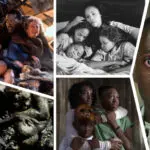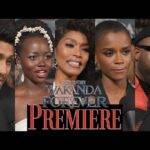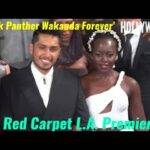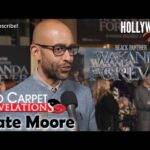Table of Contents
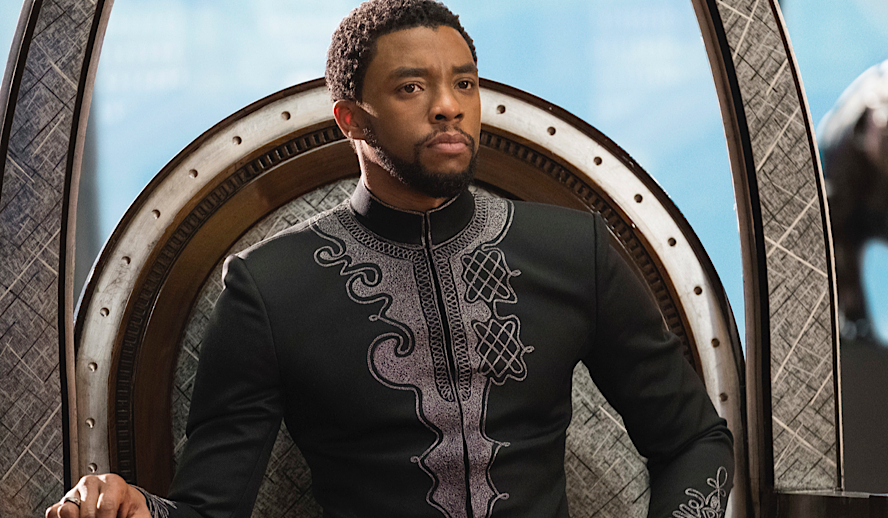
Photo: ‘Black Panther’
Positive African American male representation that shatters the stereotype isn’t necessarily rare. This type of representation has always been around, only pigeonholed into sitcoms and kid-friendly entertainment where the world’s most pressing problems could be solved within thirty minutes. ‘The Cosby Show’, ‘Smart Guy’, ‘Sister, Sister’, ‘The Fresh Prince Of Belair’, and so on practically raised a generation of young, impressionable African Americans with positive influences that continue to inspire to this day. But their influence had the potential to reach even further beyond the African American community, as these sitcoms also showed other races and nationalities that there was a future for black men and women that didn’t always involve poverty, struggle, or any other stereotype that mainstream media saw as the typical black experience.
Related article: ‘In the Heights’ – Behind the Scenes and Full Commentary/Reactions from Cast & Crew
Related article: The Hollywood Insider’s CEO Pritan Ambroase: “The Importance of Venice Film Festival as the Protector of Cinema”
Movies Against African American Stereotype
However, when it came to genres outside of the colorful and wacky world of comedy, that’s where Black representation seemed to hit its limit. Looking at the African American dramas that mostly dominated the screen during the 80s-90s period, most of them perpetuate the unsubstantiated urban myths that at one point defined the Black American’s circumstances in the media’s eyes. ‘Do The Right Thing’, ‘Higher Learning’, Dead Presidents’, ‘Above The Rim’, ‘Boyz N The Hood’, are all fantastic movies that helped frame a discussion about the uphill battles African Americans face in their community, but the vast majority of those films didn’t really challenge stereotypes. In fact, sometimes they reinforced them, where the streets are almost looked at as a rite of passage that all Black Americans should go through to earn their stripes. It didn’t help that at one point, those kinds of stories seemed to be the only ones that Hollywood found worth telling as far as mainstream dramas went. If a film with a majority black cast wanted to be taken seriously as a drama, it had to follow Hollywood’s superficial guidelines of racial stereotypes down to the letter.
It’s only recently, or rather recent in Hollywood years, that Cinema has seen genre films outside of comedy showcase Black Americans in a positive light that don’t conform to outdated racial profiles. A lot of these films have rebelled against their stereotypes in their own different ways, some with subtle execution and others with a loud declaration. These five modern films in particular have shown the Black community in all facets of its personality, further expanding the definition of what it means to be Black in America.
‘Dope’ (2015)
Director Rick Famuyiwa’s ‘Dope’, which he’d also written, is a coming of age story about a young Black American teenager living in The Bottoms, which is a rough and poverty-stricken neighborhood tucked in the shadows of Inglewood, California. Malcolm Adekanbi, played exceptionally by Shameik Moore, is an intelligent, hard-working straight A student with aspirations of attending Harvard University. On the surface, Malcolm’s story has been told before. You’ve seen the trope of an educated young teenager who’s college bound but is at the mercy of a crime-accommodating neighborhood that threatens to suck him or her in and destroy their college dreams. In fact, John Singleton’s ‘Boyz N The Hood’ is what immediately springs to mind when regarding the premise.
Related article: MUST WATCH – The Hollywood Insider’s CEO Pritan Ambroase’s Love Letter to Black Lives Matter – VIDEO
Subscribe to The Hollywood Insider’s YouTube Channel, by clicking here.
But the difference between ‘Dope’ and films like ‘Boyz’ is the portrayal of their main protagonists. In ‘Boyz’, and films of similar styles, the main characters we follow fit right in with their community despite their positive ambitions. Tre, played by Cuba Gooding Jr., is as rough around the edges and as much of a smooth talker as the gang members he’s surrounded by. Though he’s educated, you can tell by his connections, friendships, attitude, and overall charm that he’s made out of similar material as the troublemakers and lawbreakers he frequently pals around with, with the only exception being that he had a strong role model to guide him.
With ‘Dope’, however, Malcolm isn’t the typical hardened but educated high school student trying to tunnel his way out of the bottom. On the contrary, Malcolm is a geek. He plays video games, is talented with computers and anything that has to do with technology, he’s pushed around and bullied by the same kind of bad boys that Tre would pal around with, and he’s just an overall outlier in a community that’s not conducive to his personality. But as much of a geek as he is, Malcolm is still very much in tune with black culture. Specifically, Malcolm is a 90s hip hop head with an almost unhealthy obsession with that era of rap music. He dresses like he’s in the nineties, he and his friends shop for old nineties records sold in vintage vinyl, and occasionally Malcolm even finds himself using nineties slang. Malcolm reminds audiences that not every Black American who grows up in these kinds of crime-filled neighborhoods is some stern tough guy. It feels like the untold story of the Black teenager who lived in the environment without being a product of it.
The young Black teenagers who kept their heads down and went through the rigors of low-class America undetected and, for the most part, unscathed. At the same time, Malcolm also has a lot in common with the thugs and dope dealers that rule over his neighborhood like warlords, which he slowly realizes as the film advances. Malcolm also feels like a bit of social commentary on the type of 90s black nerd that was prominently featured in sitcoms. The Steve Urkels and Carlton Banks of the worlds, though layered to a point, were written as uptight pushovers or prudes that were out of touch with black culture and the butt of many jokes. Here, however, Malcolm is fully immersed in black culture, while also fluent in the type of ebonics and social cues that people communicate with in the bottoms. ‘Dope’ not only challenges the stereotype, but shatters it, focusing on a character that embodies the full spectrum of the African American experience, and offers several different yet similar answers to the question, “What’s it like growing up Black in America?”
Limited Time Offer – FREE Subscription to The Hollywood Insider
‘Moonlight’ (2016)
There’s a reason why ‘Moonlight’ earned an Academy Award for best picture back in 2016. Director Barry Jenkins managed to put together, not only one of the greatest films of the decade but one of the most important movies of all time. ‘Moonlight’ is a dark coming-of-age story about Chiron, a young African American who struggles with both his sexual and African American identity in the unforgiving high crime neighborhood of Liberty City, Florida. It follows Chiron in three phases of his life played by three different actors, with all of those phases presenting their own challenges and hurdles for our main character to overcome.
‘Moonlight’ is like driving through a city you’ve never been in before. From afar, the stereotypes are abundant. Liberty City is run by drug dealers who patrol the neighborhood as if they’ve been deputized. Chiron’s only parent is a single mother who has no qualms about putting her addiction over her own flesh and blood, and it’s the kind of environment that seemingly has no future to look forward to. But on closer inspection, you quickly realize that Liberty City has a lot more to offer the tourist than what it shows. ‘Moonlight’s characters use the African American thug stereotype as a sort of disguise to hide more vulnerable human beings with complex emotions. Juan, who was played to perfection by Oscar Winner Mahershala Ali, wears his facade as a drug dealer like a uniform. When it’s time to conduct business, he commands authority and respect without so much as saying a word. But around his protege and surrogate son, Chi’ron, a softer, more nurturing side is exposed that reveals Juan is more than the dope dealer we see when we first meet him.
It doesn’t take long to see that Juan has a tolerant, empathetic spirit that fuels his impulse to nurture Chi’ron and protect him from the dangers of his environment. Meanwhile, Chi’ron inherits Juan’s facade the way the son might inherit the father’s uniform, modeling himself after his mentor to protect himself against an environment that’s particularly dangerous for him. ‘Moonlight’ added more dimension to the typical black gangster that once dominated Black Cinema in the 90s, while also challenging common notions, ideas, and definitions of Black masculinity. Chiron takes his stereotype a bit further, immersing himself in his thug persona with the same level of commitment that actor Trevante Rhodes had towards his character. By doing so, he tries to become everything that he believes a Black man in America should be, even if it’s at the cost of his own true self.
Related article: The Hollywood Insider’s CEO Pritan Ambroase: “The Importance of Venice Film Festival as the Protector of Cinema”
Related article: The Masters of Cinema Archives: The Hollywood Insider Pays Tribute to ‘La Vie En Rose’, Exclusive Interview with Director Olivier Dahan
Related article: – Want GUARANTEED SUCCESS? Remove these ten words from your vocabulary| Transform your life INSTANTLY
‘Candy Jar’ (2018)
‘Candy Jar’ is a small, quaint Netflix film that’s been operating under the radar since its release in 2018. It was directed by Ben Shelton and stars Sami Gayle and Jacob Latimore as Lona Skinner and Bennet Russell respectively, two educated prep school academy students who are constantly competing with one another by virtue of both being at the top of their classes. ‘Candy Jar’ didn’t set the world ablaze. It has quite a few cliches and has a somewhat predictable plot that other films have done with more inspiration. But it has plenty of heart, a strong message, and features fresh young Black representation that’s refreshing to see. Latimore’s Bennet is always well dressed and groomed, occasionally even outside of school, like he’s always giving the best presentation of himself possible just in case. He’s uptight, articulate, and if he existed in another time would almost immediately be labeled a nerd himself, out of touch with his culture. But ‘Candy Jar’ doesn’t focus on race, normalizing Bennet’s style as common and ordinary.
Although he’s not exactly what you’d call a ladies’ man, Bennet also carries a charisma, confidence, and charm that further distinguishes him from characters of a similar nature who have typically lacked those personality strengths. Despite the fact that ‘Candy Jar’ doesn’t focus on race, it’s possible that it still sees it enough to acknowledge it in subtle ways. ‘Candy Jar’ pairs an affluent, wealthy rich African American teenager with a white female co-lead who comes from a lower-class family. For a while, this kind of premise was reversed, where an African American from a background of poverty is paired with an affluent Caucasian through special circumstances. Movies like ‘The Upside’ and ‘The Blind Side’, although heartfelt in their own ways, have often perpetuated this kind of dynamic. ‘Candy Jar’, however, flipped the roles, and the script, with a level of authenticity that makes its messages come off as less forced and more natural.
‘Candy Jar’ further attempts to wound the stereotype by adding unexpected layers to Bennet that are nuanced, but adds a lot of weight to an already three-dimensional character. At some point in the film it’s revealed that Bennet’s mother, Julia Bennet played expertly by Uzo Aduba, adopted her son. In most films, this might be considered a spoiler, but in ‘Candy Jar’ the revelation is tossed out as casually as telling someone the time. It’s treated as an interesting tidbit with no bearing on Bennet’s character development or the story, whereas other films might center an entire story arc around an African American child or teenager being welcomed into an upper-class household. But with ‘Candy Jar’, Bennet’s past isn’t defining him. He doesn’t carry the baggage of whatever situation led him to get adopted in the first place. He’s not an unruly Black teenager from a rough neighborhood trying to get acclimated to a new lifestyle, he’s simply a kid with a good head on his shoulders focused on the present and his future.
Thematically, ‘Candy Jar’ isn’t as rich as something like ‘Dope’, and its main story is a bit uninspired, but it makes up for that with small, intriguing details that go against stereotypes and make for an interesting watch.
Related article: A Reflection on Chadwick Boseman’s ‘Black Panther’, a Gift to the World and Its Children
Related article: ‘Judas and the Black Messiah’: The Panther Party Rears Revolutionaries | Oscar Buzz
‘Black Panther’ (2018)
You would’ve had to live under a rock, in the trenches of the pacific ocean, to not witness the cultural impact that ‘Black Panther’ had on Cinema in 2018. Some even saw the movie as a movement that was decades in the making, a film that was in the making far before the movie’s actual development, and was the ultimate culmination of Black Cinematic progression stamped with the Marvel Cinematic Universe’s seal of approval. Carried by the late Chadwick Boseman, ‘Black Panther’ gave young African American children characters they could see themselves in and identify with. For the first time, Black culture was shown in all of its elegance and sophistication, yet ‘Black Panther’ wasn’t just content on basking on what Black culture is, they fostered discussion about what it also could be in the future.
Given the themes, messages, and legacies that make up Black Panther’s grand mythology, it’s inevitable that a film of its stature would challenge or rebel against racial stereotypes. It does so in a variety of ways, one of which is through the film’s main antagonist, Michael B. Jordan’s Erik Killmonger. A born Wakandan, but orphaned and stranded in the crime-ridden neighborhood of Oakland, California, Killmonger dedicated his life to amassing the kind of training, resources, and combat experience needed to later return to Wakanda and try to take the throne from his cousin T’Challa, the Wakandan king and Black Panther himself played by Boseman. Although his education and combat training are provided through a quick History lesson provided by Martin Freeman’s Everett K. Ross, there’s enough information given to paint a portrait of Killmonger’s background. Despite the ugly reality of his environment, Killmonger, through sheer will, persevered to get into the highly prestigious school of MIT, before graduating after two years. It’s a notable detail, showing that even Black Panther’s villain is a symbol of Black resilience, as despite his tumultuous upbringing he didn’t fall into the life of crime that others in his situation so easily succumbed to like self-fulfilling prophecies.
It was a nice, added touch that added even more depth to Killmonger and his thirst for power, and was a depiction of African American perseverance in the face of relentless adversity. While Killmonger has spent the majority of his childhood raised under less than ideal circumstances, he flaunts the education and awareness of a college professor, while still keeping the verbiage, attitude, and habits that’s usually seen from someone that grew up in Killmonger’s environment. He speaks in slang and ebonics, his mannerisms and posture give details of the company he kept during his youth. But he’s also knowledgeable about the Black American experience, well versed in his history with a tactical mind that’s taken him far in his militaristic career. It’s a delicate, but volatile, fusion of two worlds, deconstructing the stereotype of the typical thug from Oakland, and the world-weary and educated military vet, by combining these two common tropes to give us a character as layered as he is terrifying.
Related article: Why Noname Turned Down the “Judas and the Black Messiah” Soundtrack | Whitewashing Black History
Related article: ‘Moonlight’: Illuminating Communal Family Dynamics in the Black Community
‘Fatherhood’ (2021)
‘Fatherhood’, directed by Paul Weitz, is a drama-comedy about a father trying his best to raise his daughter as a single parent after the unexpected death of his wife. The film sees Kevin Hart giving an impressive performance as Matt Logelin, the widowed dad who tries to play both Mom and Dad roles, and speaks a lot about the strength it takes to rear your child under such circumstances. It’s based on the bestselling book, ‘Two Kisses For Maddy: A Memoir of Loss and Love’, written by the real Matthew Logelin. Although there are quite a few reported distances between the memoir and the film, one notable difference is the race bending of the author. Matt is white in real life, whereas in film he’s obviously portrayed by an African American. Sometimes there’s controversy that surrounds race-bending characters, especially when it seems unnecessary, and although I don’t always agree with the idea, it definitely works with ‘Fatherhood.’ How many films portray Black American single fathers in such a positive, endearing light? What makes ‘Fatherhood’ such a unique representation of Black fatherhood is how Hart’s Matt isn’t trying to raise Maddy through a harsh environment full of drugs, addicts, and criminals.
It doesn’t go the cheap route of telling a compelling narrative about Black parenthood that we’ve seen in so many movies and television shows. Rather, ‘Fatherhood’ gives Maddy a positive black role model in her father to help guide her, and is able to craft a compelling story without falling back on typical black struggles and trauma that was once a permanent part of the Black Cinematic conscience. It reminds the viewer that there are Black fathers who are widows out there as well, who don’t get nearly as much screen time or credit as single Black mothers, even though both genders face the same kind of challenges when it comes to raising a child by yourself.
Related article: Netflix and Kevin Hart’s ‘Fatherhood’ Is An Emotional & Powerful Gift To Black Fathers Everywhere
Related article: Kevin Hart’s ‘Fatherhood’: The Long Overdue Representation of Single Black Fathers
‘Fatherhood’ also showcases a strong Black American in Matt Logelin that didn’t earn his strength through the perils of lower-middle-class adversity, which was a nice touch. Oftentimes there’s this persistent motif of an African American male having to experience overwhelming poverty, essentially coming from nothing, to realize his true value as a Black man in America. But from what information we’re given about Matt’s childhood, he lived a decent, unassuming life that still allowed him to exhibit his strength. Whether intentional or not, it was an incredibly small, almost microscopic detail that left a huge impression on my viewing of the film.
Since Cinema always inspires Cinema, I have no doubt that these five modern films, and even films that weren’t mentioned on this list, are going to inspire new stories to emerge that further go against archaic and outdated African American stereotypes, further motivating African Americans to avoid fitting in categorical boxes and forging their own identities irrespective of what the media, society, or even people closest to them think it means to be Black. Because as these types of films have shown, being Black can mean many things all at once, and the world of Cinema has finally fully embraced that attitude.
By Tony Stallings
Click here to read The Hollywood Insider’s CEO Pritan Ambroase’s love letter to Black Lives Matter, in which he tackles more than just police reform, press freedom and more – click here.
An excerpt from the love letter: The Hollywood Insider’s CEO/editor-in-chief Pritan Ambroase affirms, “The Hollywood Insider fully supports the much-needed Black Lives Matter movement. We are actively, physically and digitally a part of this global movement. We will continue reporting on this major issue of police brutality and legal murders of Black people to hold the system accountable. We will continue reporting on this major issue with kindness and respect to all Black people, as each and every one of them are seen and heard.
Just a reminder, that the Black Lives Matter movement is about more than just police brutality and extends into banking, housing, education, medical, infrastructure, etc. We have the space and time for all your stories. We believe in peaceful/non-violent protests and I would like to request the rest of media to focus on 95% of the protests that are peaceful and working effectively with positive changes happening daily. Media has a responsibility to better the world and The Hollywood Insider will continue to do so.”
Ways to support Black Lives Matter Movement to end systemic racism
More Interesting Stories From The Hollywood Insider
– Want GUARANTEED SUCCESS? Remove these ten words from your vocabulary| Transform your life INSTANTLY
– Compilation: All James Bond 007 Opening Sequences From 1962 Sean Connery to Daniel Craig
– Do you know the hidden messages in ‘Call Me By Your Name’? Find out behind the scenes facts in the full commentary and In-depth analysis of the cinematic masterpiece
– A Tribute To The Academy Awards: All Best Actor/Actress Speeches From The Beginning Of Oscars 1929-2019 | From Rami Malek, Leonardo DiCaprio To Denzel Washington, Halle Berry & Beyond | From Olivia Colman, Meryl Streep To Bette Davis & Beyond
– In the 32nd Year Of His Career, Keanu Reeves’ Face Continues To Reign After Launching Movies Earning Over $4.3 Billion In Total – “John Wick”, “Toy Story 4”, “Matrix”, And Many More
african american stereotype, african american stereotype, african american stereotype, african american stereotype, african american stereotype, african american stereotype, african american stereotype, african american stereotype, african american stereotype, african american stereotype, african american stereotype, african american stereotype, african american stereotype, african american stereotype, african american stereotype, african american stereotype, african american stereotype, african american stereotype, african american stereotype, african american stereotype, african american stereotype, african american stereotype, african american stereotype, african american stereotype, african american stereotype, african american stereotype, african american stereotype, african american stereotype, african american stereotype, african american stereotype, african american stereotype, african american stereotype, african american stereotype, african american stereotype, african american stereotype, african american stereotype, african american stereotype, african american stereotype, african american stereotype, african american stereotype, african american stereotype, african american stereotype

Tony Stallings is an avid follower of the entertainment industry who uses his passion for writing to relay meaningful, positive messages and narratives from the world of Hollywood. Tony doesn’t just focus on covering entertainment, but delving into it. He prides himself on focusing on the bigger picture, concerned with how entertainment culture affects and shapes the world at large with utmost honesty. Tony’s dedication to journalistic integrity, reliability and passion is a common bond that he shares with Hollywood Insider, and he’s eager to help people recognize the value of entertainment through their platform.

